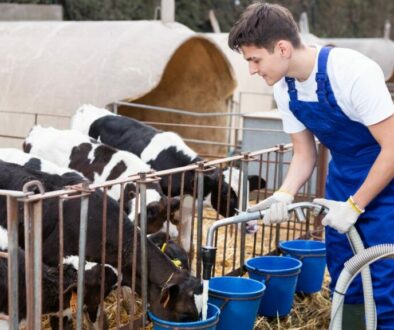How To Become A Game Warden?
If you’re passionate about wildlife and law enforcement, becoming a game warden might be the perfect career choice for you. Game wardens, also known as conservation officers or wildlife officers, are responsible for enforcing wildlife laws and protecting natural resources. They play a critical role in preserving the environment and ensuring the safety of both animals and humans. In this article, we’ll explore the steps you need to take to become a game warden, the skills required for the job, and the benefits of working in this field.
Steps To Becoming A Game Warden
The requirements to become a game warden vary from state to state, but most states have similar prerequisites. Here are the general steps you need to follow:
- Earn a High School Diploma or Equivalent:
Having a high school diploma is the basic requirement for becoming a game warden. It is important to have a strong foundation in subjects such as biology, chemistry, and mathematics as these subjects are relevant to the job of a game warden.
- Get a Bachelor’s Degree:
Although a college degree is not required in all states, it is highly recommended. A degree in a relevant field such as environmental science, wildlife management, or criminal justice can give you an edge over other candidates. In addition, a bachelor’s degree can help you develop critical thinking, problem-solving, and communication skills that are essential for the job of a game warden.
- Pass the Civil Service Exam:
To be considered for a game warden position, you’ll need to pass a civil service exam. This exam assesses knowledge, skills, and abilities related to law enforcement and natural resource management. The exam may include sections on reading comprehension, writing, mathematics, and reasoning.
- Undergo Training:
Once you’ve been hired as a game warden, you’ll need to undergo a rigorous training program that includes classroom instruction, physical training, and field training. The training program may last several months and will cover topics such as wildlife identification, hunting and fishing regulations, firearms training, and search and rescue techniques.
- Get Certified:
After completing your training, you’ll need to get certified by passing a certification exam. The exam tests your knowledge of state and federal wildlife laws, law enforcement procedures, and natural resource management principles. In addition, you may need to pass a physical fitness test and a background check before you can become certified.
Becoming a game warden is a rewarding career that allows you to protect and preserve our natural resources. Game wardens work in a variety of settings, from national parks and wildlife refuges to urban areas and coastal regions. They enforce hunting and fishing regulations, investigate wildlife crimes, and educate the public about conservation and outdoor recreation.
Game wardens also play a critical role in managing wildlife populations and habitats. They work closely with biologists, ecologists, and other scientists to monitor wildlife populations, conduct research, and develop management plans. They may also work with landowners, hunters, and anglers to promote sustainable use of natural resources.
If you’re interested in becoming a game warden, it’s important to have a passion for wildlife and the outdoors. Game wardens often work in remote areas and may be required to work long hours, weekends, and holidays. However, the job can be highly rewarding for those who are committed to protecting our natural resources.
Skills Needed For Becoming A Game Warden
Becoming a game warden is a challenging and rewarding career choice that requires a unique blend of skills. Game wardens are responsible for enforcing wildlife laws, protecting natural resources, and ensuring public safety. To be successful in this profession, you need to have a deep understanding of wildlife and natural resources, as well as law enforcement expertise. Here are the skills you need to succeed as a game warden:
- Strong Communication Skills: Game wardens must have excellent communication skills to interact with the public, other law enforcement agencies, and natural resource managers. They need to be able to communicate effectively with people from all walks of life, including hunters, anglers, hikers, and campers. They also need to be able to write clear and concise reports that document their activities and investigations.
- Physical Fitness: Game wardens need to be physically fit to handle the demands of the job, which often involves strenuous outdoor activities like hiking, climbing, and kayaking. They need to be able to navigate rough terrain, work in extreme weather conditions, and respond quickly to emergencies. They also need to be able to carry heavy equipment and firearms while on patrol.
- Attention to Detail: Game wardens need to pay close attention to detail to spot violations of wildlife laws and natural resource management practices. They need to be able to recognize signs of illegal hunting, fishing, and trapping, as well as identify endangered species and habitats. They also need to be able to collect and analyze evidence to build a case against violators.
- Critical Thinking: Game wardens need to be able to think critically to make quick decisions in the field that protect both wildlife and humans. They need to be able to assess situations and determine the appropriate course of action, whether it’s issuing a warning, making an arrest, or calling for backup. They also need to be able to evaluate risks and take steps to minimize them.
- Passion for Wildlife: Game wardens need to be passionate about wildlife and the environment to effectively protect natural resources and enforce wildlife laws. They need to have a deep understanding of the ecosystems they are responsible for and be committed to preserving them for future generations. They also need to be able to educate the public about the importance of conservation and sustainable use of natural resources.
If you are interested in becoming a game warden, it’s important to start developing these skills early on. You can gain experience by volunteering with conservation organizations, participating in outdoor activities, and pursuing a degree in a related field such as wildlife biology or criminal justice. With dedication and hard work, you can build a rewarding career as a game warden and make a difference in protecting our natural resources.
What Is A Game Warden?
A game warden is a highly trained law enforcement officer who is responsible for maintaining and preserving the natural resources of their state or federal jurisdiction. The role of a game warden is to protect and enforce wildlife laws, maintain the balance of nature, and ensure that hunters and fishermen comply with regulations.
Game wardens are employed by state and federal agencies, and their duties vary depending on their location and jurisdiction. In some areas, they may be responsible for enforcing hunting and fishing regulations, while in other areas, they may also be responsible for monitoring wildlife habitats and protecting endangered species.
One of the most important roles of a game warden is to investigate wildlife-related crimes. These crimes can include poaching, illegal hunting, and illegal fishing. Game wardens work closely with other law enforcement agencies to investigate these crimes and bring the perpetrators to justice.
Game wardens are also responsible for educating the public about wildlife laws and conservation efforts. They often give presentations at schools and community events to raise awareness about the importance of protecting natural resources and preserving wildlife habitats.
To become a game warden, individuals must undergo rigorous training and education. They must have a strong background in natural sciences, law enforcement, and wildlife management. Many game wardens also have a degree in wildlife biology or a related field.
Game wardens often work in remote areas, and their job can be physically demanding and dangerous. They must be skilled in hunting, fishing, and outdoor survival, as well as have excellent communication and problem-solving skills.
Game wardens play a vital role in protecting our natural resources and preserving wildlife habitats. They are highly trained law enforcement officers who work tirelessly to enforce wildlife laws, investigate crimes, and educate the public about the importance of conservation. Their work is essential for maintaining the balance of nature and ensuring that future generations can enjoy the beauty and diversity of our natural world.
The Benefits of Working as A Game Warden
In addition to having a fulfilling and important job, game wardens enjoy many benefits. Here are some of the perks of working as a game warden:
- Competitive Salary: As a game warden, you can earn a competitive salary with the potential for overtime pay and benefits.
- Variety of Work: Game wardens work in a variety of environments, from deserts to forests to waterways, making for a dynamic and exciting career.
- Make a Difference: Game wardens are responsible for protecting wildlife and natural resources, making a positive impact on the environment and society.
- Room for Advancement: With experience, game wardens can advance to leadership positions and oversee other conservation officers.
- Job Security: The need for game wardens is expected to grow in the coming years, ensuring job security for those seeking a career in natural resource management and law enforcement.
Working as a game warden is not just a job, it’s a calling. It requires a deep love and respect for nature, as well as a desire to protect and preserve it for future generations. Game wardens are the unsung heroes of the wilderness, working tirelessly to ensure that our natural resources are protected and conserved.
One of the greatest benefits of working as a game warden is the opportunity to work in a variety of environments. Whether you’re patrolling the deserts of the Southwest or the forests of the Pacific Northwest, every day is different. You might find yourself tracking a poacher through the woods one day and rescuing a stranded hiker the next.
But it’s not just the variety of work that makes being a game warden so rewarding. It’s also the fact that you are making a real difference in the world. By protecting wildlife and natural resources, game wardens are helping to ensure that future generations will be able to enjoy the same beauty and wonder that we do today.
And for those who are looking to advance in their careers, there is plenty of room for growth. With experience, game wardens can move into leadership positions, overseeing other conservation officers and helping to shape the future of natural resource management.
Finally, for those who are concerned about job security, working as a game warden is an excellent choice. The need for game wardens is expected to grow in the coming years, ensuring that there will always be a demand for those who are passionate about protecting our natural resources.
Working as a game warden is not just a job, it’s a way of life. It requires dedication, hard work, and a deep love for nature. But for those who are up for the challenge, it can be one of the most rewarding and fulfilling careers out there.




